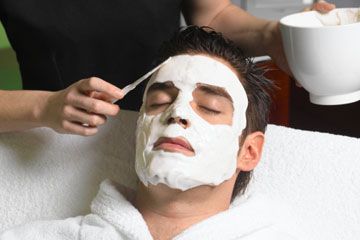It's a fact of life, elastosis happens -- along with graying hair, wrinkles and reduced muscularity. Elastosis is a condition that's defined as a reduction in the elasticity of the skin. It's an unavoidable component of the aging process, but its onset can be accelerated or decelerated. Lots of clever marketing would have you believe that the aging process can be reversed. Such claims are dubious at best. As we all know, there's no actual fountain of youth, yet actions can be taken to improve your skin's health and appearance.
Those actions take many forms. Some are changes in habits; others simply involve how long you stay exposed to the elements. Even others involve applying certain creams or consuming the right supplements. The expertise of a physician or skilled surgeon can even come into play.
Advertisement
And, to stay ahead of the game, you could always:
- Avoid smoking: The adage "an ounce of prevention is worth a pound of cure" certainly applies to cigarette smoke and skin elasticity. Among its many other harmful effects on the body, smoking damages the skin, causes wrinkles and reduces the youthful appearance that elasticity brings. Smoking is one of the top two causes of elastosis. What's the second? Read on.
- Limit sun exposure: Skin that has a weathered appearance is often just that -- weathered. Your skin serves as your body's shield, but bombarding that shield is unhealthy and creates a leathery appearance. You can't avoid the outdoors -- nor should you because that will have detrimental effects of another sort -- but you can keep your skin covered. If you don't currently use sunscreen, consider making it part of your routine.
- Try supplements: Supplements may help improve skin elasticity. Notice the use of the word "may." Science has not proven the claims of most over-the-counter remedies. Cartilage and collagen are formed with the help of vitamin C, so it stands to reason that this vitamin can be beneficial to your skin. Antioxidants are present in vitamin E, which is said to increase elasticity -- although too much vitamin E poses dangers. The supplement lutein is another product commonly used to treat macular degeneration, and one some people claim also improves skin health.
- Experiment with creams: Not everyone is comfortable with the idea of taking a pill for skin elasticity. Creams offer a non-invasive means of achieving what supplements claim to offer. The most popular skin cream is vitamin A, which also goes by the name retinol. Some scientific studies have shown that it can make a difference in the appearance of aging skin. Vitamin C also comes in cream form, but doctors say that absorbing it through the consumption of fruits and vegetables is a more effective route.
- Explore surgery: In cases of extreme weight loss, the skin is unable to resume its previous shape. It has simply been stretched too far. If you've lost 50 to 100 pounds (22.6 to 45.4 kilograms) or more through natural means, most doctors suggest that you wait two years before considering plastic surgery. It's an expensive procedure not covered by insurance because it's considered to be elective.
The wear-and-tear of life can leave your skin with reduced elasticity, but with prevention, healthy habits and a disciplined approach to daily life, you can renew some of your youthful appearance.
Advertisement


